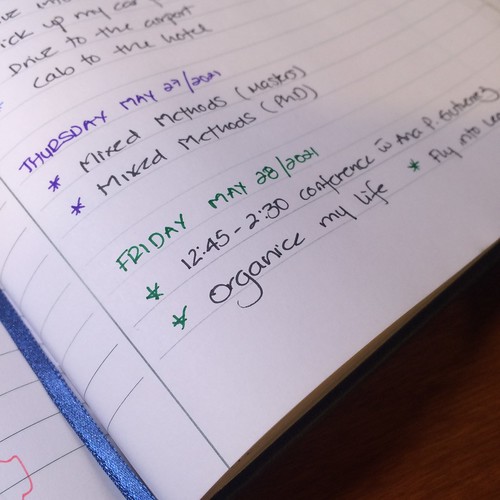I’ve been working through some ideas on planning and project management for academics, as I’ve been asked to deliver more project management and planning workshops for academics over the past few months. Thinking deeply about these things allows me to consider how different elements play out in how we manage our academic commitments and how we do project planning. This post outlines my reflections.
As someone who suffered through chronic pain, chronic fatigue, psoriasis-eczema-dermatitis, I have become keenly aware of 3 things that we believe are in infinite supply: Energy, Time and Health.
I’ve said a lot of “yes” to things that I believe I will be healthy for, I will have the time and energy to do them. Well, guess what? When I travel, I get super tired now. I’ve had to travel three times over the past 3 weeks. The result: I’m exhausted and behind on everything.
These feelings of exhaustion and overwhelm led me to engage in self-reflection. I said “NO” to bidding on a project where I’m basically the most qualified scholar to do the project. I said “NO” to teaching a class I’ve perfected over the years, one where I already have the slides and reading packet prepared. Why? Because I have limited time and energy.
I’m literally barely getting through the massive number of “yes” I said (when I had the energy, health and time to do them), and feeling anxious about this made me realize that one of the best ways to teach project management is to showcase when something didn’t go well.
Generally speaking I’m almost always in control of my agenda and my projects. It’s when I say “yes” to something without consulting first with my overall global planning scheme that I screw up.
Even my mother noticed: “but… you’re always so organized!”
Well, yes Mom except when I let something slide.
What I tell everyone who attends my workshops on planning and project management: The time you spend planning is super important and will prove invaluable when you’re confronted with feelings of overwhelm.
Now if I could synthesize my learning, I would say, from my experience:
- say “yes” to projects that you’re 100% certain you have the time, energy and health to do.
- frequently and systematically monitor yourself so you can detect when you no longer have time, energy or health to do something you committed to.
- generally speaking, assume EVERYTHING will take 2-3 times longer than you originally planned.
- – always (if you can, of course) insert “buffers” onto your calendar — blocks of time that will allow you to rest in between activities.
- saying “NO” is healthy and ok.
- And perhaps the most useful lesson I have learned: saying “I am no longer able to do X, even though I had originally committed to do it. Sorry.” is ok. Obviously it helps if you help find a replacement, but it’s also healthy to admit you have ran out of time and energy.
I really hope these reflections are useful to others in planning their workload, particularly under these complex situations (COVID19, work-from-home, etc.)


0 Responses
Stay in touch with the conversation, subscribe to the RSS feed for comments on this post.